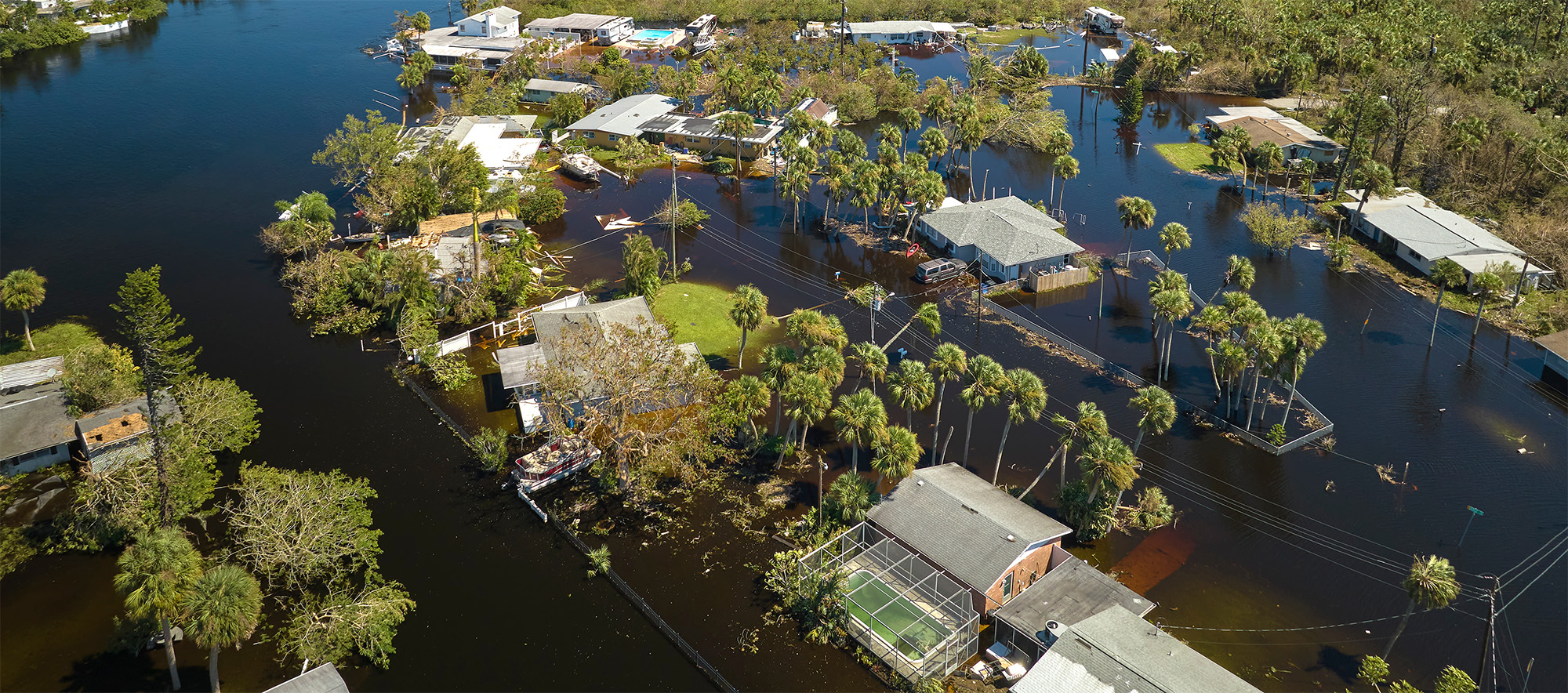

Dealing with flood damage can feel overwhelming, especially when you are trying to recover your losses. At the Law Offices of Gonzalo Funes, PA, we understand how devastating flood damage can be for homeowners, renters, and business owners in Miami. Flooding can happen suddenly, and when it does, it can leave you struggling to piece your life and property back together. If you are facing difficulties with your flood damage insurance claim, working with an experienced Miami flood damage lawyer can help protect your rights and ensure that your claim is handled properly. Continue reading and reach out to a Miami property damage lawyer for a free case evaluation today.
In insurance terms, flood damage is not the same as water damage that might occur from a burst pipe or a roof leak. Flood damage refers to water damage caused by the overflow of inland or tidal waters, rapid accumulation of surface water from heavy rain, mudflows, or the collapse of land along a body of water. In other words, the water must come from outside your home or business and enter your property due to a natural event, rather than from internal plumbing or appliance failures.
In Miami, flood damage often occurs because of tropical storms, hurricanes, or prolonged periods of heavy rainfall that overwhelm the drainage systems. It is important to understand that flood damage is typically covered under a separate flood insurance policy, not your standard homeowners or business property insurance policy. If you do not have a flood insurance policy, you may be limited in what assistance is available through your insurer, though other remedies might be possible depending on the circumstances.
Floods can cause a wide range of destruction to both residential and commercial properties. Some of the most common types of flood-related damage include the following:
Filing a flood damage claim can be far more complicated than many policyholders expect. One of the first challenges is understanding what your flood insurance actually covers and what it does not. Flood insurance policies, often provided through the National Flood Insurance Program (NFIP), have specific limits and exclusions that may not fully cover all of your losses. For example, many standard policies do not cover items stored in basements or outdoor structures like detached garages or sheds.
Another major challenge arises when insurance adjusters undervalue your claim or deny it altogether. It is not uncommon for policyholders to find that the settlement offered does not come close to covering the true cost of repairs and replacements. Adjusters might argue that certain damage was pre-existing or unrelated to the flood event, leaving you with unexpected out-of-pocket expenses.
Additionally, flood damage claims involve strict deadlines and documentation requirements. Failing to submit the correct forms or supporting evidence within the required time frame can lead to delays or denial of your claim. This is one of the key reasons why having an experienced flood damage attorney on your side can make a significant difference.
Understanding the flood damage claims process can help you feel more prepared and confident as you work through the necessary steps. Here is a general outline of what happens after flood damage occurs:
Florida law provides important protections for policyholders dealing with flood damage claims. For example, under Florida’s insurance regulations, insurers are required to acknowledge receipt of a claim within a set number of days and provide a timely decision on coverage. If an insurance company fails to meet these deadlines or acts in bad faith, you may have legal grounds to pursue additional compensation.
Florida law also allows policyholders to hire public adjusters or legal counsel to represent their interests in the claims process. This ensures that you are not left to deal with complicated insurance policies and negotiations on your own. Furthermore, if your claim is wrongfully denied or delayed, you may be entitled to attorney’s fees and costs if you prevail in a lawsuit against your insurer.
It can be difficult to know when to bring in legal help for a flood damage claim, but there are certain situations where hiring an attorney is strongly recommended. If your claim has been denied, underpaid, or delayed without a valid reason, it is time to consult with a Miami flood damage lawyer. The same is true if the insurance company is making unreasonable demands for documentation or repairs, or if you feel that your rights are not being respected during the claims process.
In addition, hiring a lawyer early in the process can help ensure that your claim is handled correctly from the start. An attorney can assist with gathering evidence, preparing forms, and communicating with the insurance company on your behalf. This can relieve much of the stress and uncertainty that often accompanies flood damage claims, allowing you to focus on restoring your property and your life.
At the Law Offices of Gonzalo Funes, PA, we are committed to standing up for policyholders throughout Miami and the surrounding areas. We are here to fight for the compensation you deserve. If you are dealing with flood damage, do not hesitate to reach out to a Miami flood damage lawyer for guidance. Your initial consultation is always free, and we are ready to help you protect your rights. Contact us today.
© 2025 Law Offices of Gonzalo Funes, PA. All rights reserved. Attorney advertising.